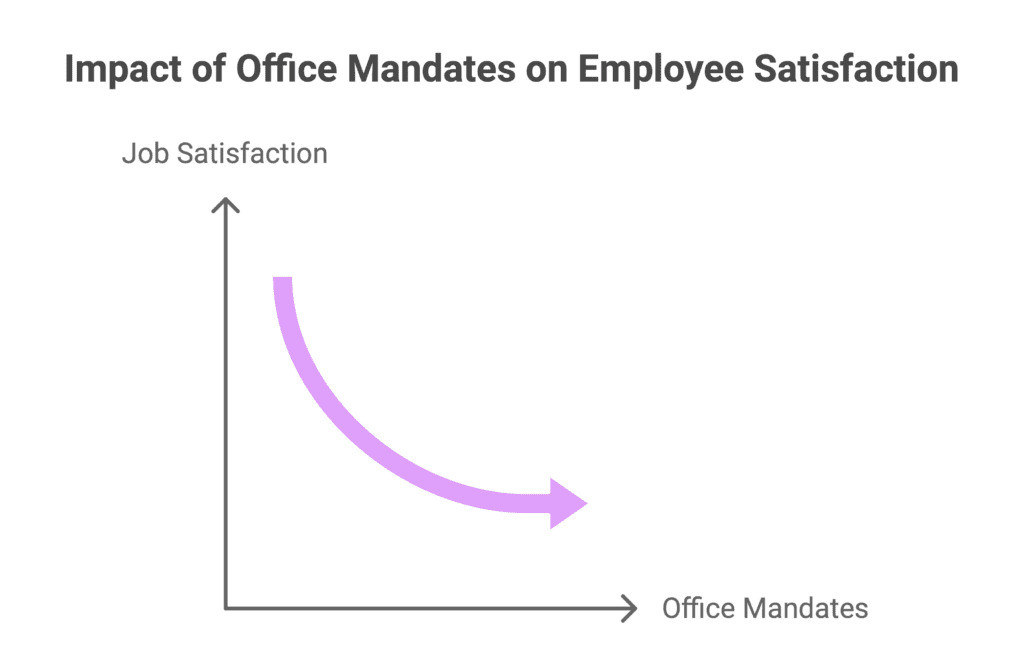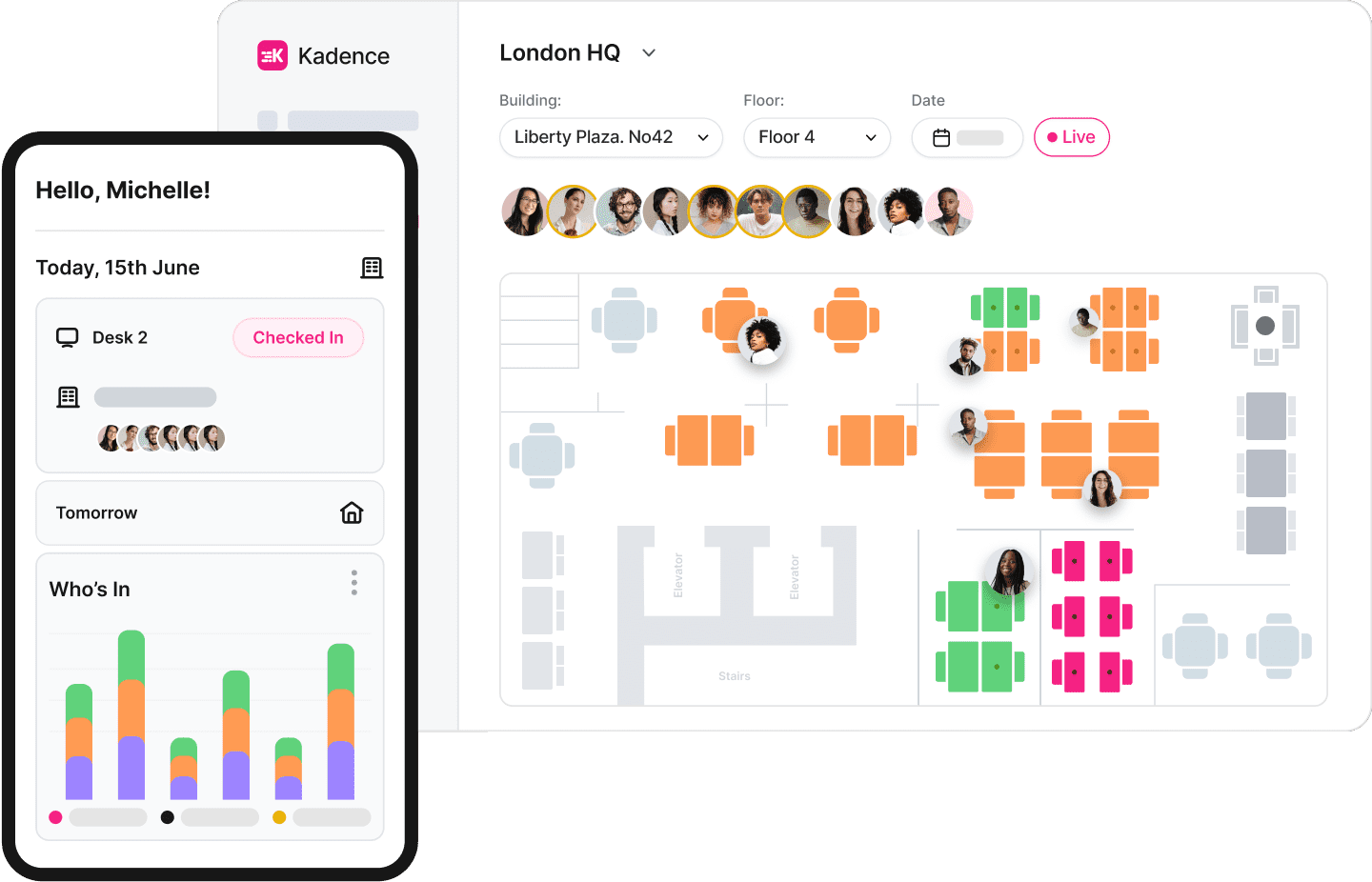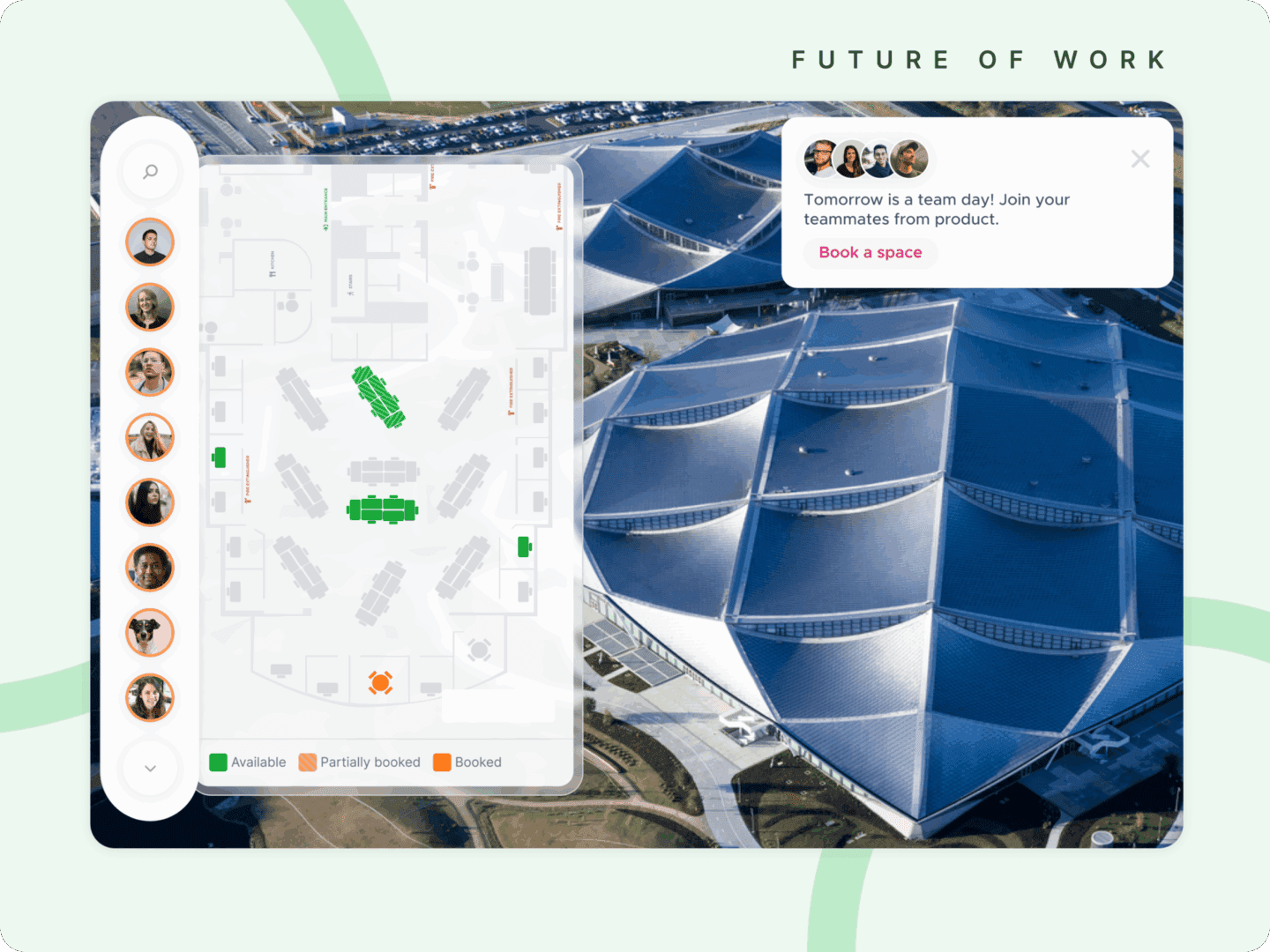JPMorgan Chase employees are fighting back, launching a petition to stop the company’s strict five-day return-to-office (RTO) mandate. The petition calls for JPMorgan to retain (or return to):
- the flexible hybrid-working model for roles that have already used it—regardless of rank,
- invest resources to expand hybrid-eligibility to more job categories,
- and allow remote-capable workers to work from any JPMC corporate office in their region.
This isn’t just another case of workers resisting change; it’s a pivotal moment that underscores the growing disconnect between leadership expectations and employee realities in the hybrid work era.
The Petition: A Stand For Professional Dignity
The petition has quickly gained traction among JPMorgan employees. It’s more than just a plea to work from home—it’s a powerful statement about autonomy, productivity, and respect in the workplace. As the petition states:
Employees argue that the mandate disrupts work-life balance, increases commuting costs, and dismisses the lessons learned during the pandemic. It goes on to say that: “From a corporate-citizenship perspective, it worsens traffic and pollution while disproportionately pushing out women, caregivers, senior employees, and individuals with disabilities. Many of these are top performers, and many of them only able to join the workforce under hybrid work rules.”

As one signatory points out:
The Data Doesn’t Lie: Productivity And Profitability In Hybrid Work
What makes this petition particularly compelling is its direct reference to academic research, notably the work of Stanford economist Nick Bloom. The petition cites:
Bloom’s A/B test study on hybrid work, published in Harvard Business Review, reinforces this point. The research revealed that hybrid models not only maintain productivity but also enhance employee satisfaction and reduce attrition rates.
Specifically, the study found no significant difference in productivity between employees working hybrid and those in the office full-time. However, employees in hybrid models reported higher satisfaction levels and experienced a 35% lower attrition rate compared to their fully in-office counterparts. These aren’t just theoretical findings—they reflect the real-world experiences of companies that have embraced flexible work arrangements and reaped measurable benefits.
JPMorgan’s Own Success Story
Ironically, JPMorgan’s record profits during the pandemic years are a testament to the effectiveness of hybrid work. As the petition highlights:
This raises a critical question: if hybrid work has been so successful, why the sudden shift to a rigid, full-time office model?

The Bigger Picture: Control vs. Trust
At its core, this debate isn’t just about where work happens—it’s about how companies view their employees. Mandates often stem from a desire for control, rooted in outdated notions that productivity requires physical presence. But the pandemic shattered that myth, proving that trust and autonomy can drive results just as effectively, if not more so.
As we discussed in our recent Kadence article, rigid RTO policies risk alienating top talent and stifling the very innovation companies need to thrive in today’s dynamic environment.
Another signatory notes:
What Companies Can Learn from This
JPMorgan’s situation is a cautionary tale for leaders everywhere. Here are three key takeaways:
- Listen to Your Employees: The petition reflects genuine concerns about well-being, productivity, and respect. Ignoring these voices can lead to disengagement and higher turnover.
- Trust the Data: Research consistently shows the benefits of hybrid work. Companies that embrace flexibility often see gains in both performance and employee satisfaction.
- Flexibility is the Future: Hybrid work isn’t a trend; it’s a strategic advantage. Organizations that adapt will attract and retain top talent in an increasingly competitive landscape.
How Kadence Can Help
At Kadence, we understand the complexities of managing hybrid teams. Our platform is designed to help companies create flexible, efficient, and employee-centric work environments. By enabling smarter space utilization and fostering collaboration, Kadence empowers organizations to thrive in the hybrid era.
The JPMorgan petition is more than just a protest—it’s a wake-up call. The future of work is here, and it’s flexible. The question is: will companies embrace it or get left behind?
Ready to future-proof your workplace? Book a demo with Kadence today and discover how we can help your team thrive in the hybrid era.





